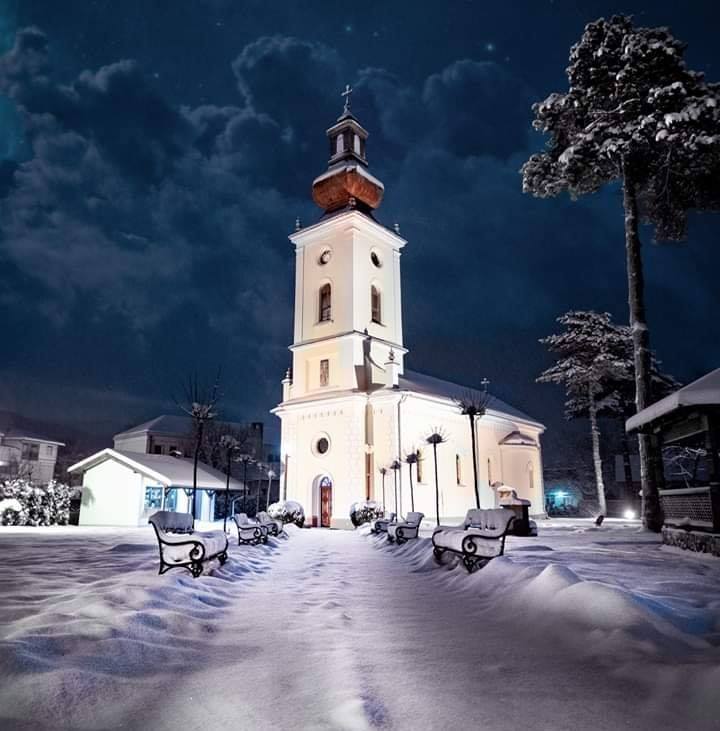By Jovan Dučić
First published in Amerikanski Srbobran, 1942
IX
No one should blame Pašić for this mistake. Neither should some of his chief cabinet member from the 1914-1918 emigre government be blamed either. This we will see later, based on many facts. Pašić perhaps knew the best the Croat Yugoslavs at the conclusion of the Corfu Declaration, around 7th July 1917, on the magical Ionian island. After all, Pašić had already had several incidents by that strange date with these Croat members of the Yugoslav Committee, which clearly let him know which path the state that he had guided with a steady hand had taken. The Yugoslav Committee is the main culprit for Yugoslavia, its utopia and for all that which had to lead our peoples to the present-day chaos. – The second culprit was Pribićević who was the first to propose in the Croatian Sabor that Croatia, Slovenia and Dalmatia should secede from Vienna and Pest and unite with Serbia and Montenegro in a single state (his speech of 29. October 1918.), which he often pointed out (see “Погледи на стање у Југославији”, Paris 1932).
From all that we have presented so far, it can be clearly seen that neither Gaj’s Illyrism nor Strossmayer’s Yugoslavism could be in any way a feeling of national solidarity with the Serbs, not an irredentist movement with Serbia and Montenegro for the sake of some future state on the wreckage of the Habsburg monarchy. To the contrary, this was the policy of Vienna and the Vatican dressed up in a a very sweetened and supposedly romantic, national idealism; a policy of big words and colourful pictures; honey from the hive of two groups of people, lawyers and friars; that is to say people for whom the military and warrior spirit of a Serb represent something most indiscernible and most unwated. The Illyrians first took the Serbian language to appropriate the literature of Dubrovnik, which was wholly built on that language and then to be able to (with a cynicism which can not be imagined in our honest house) go around Bosnia and raid Serbian national poems and so shamelessly print them in Zagreb as Croatian national poetry. And the Yugoslavs from Đakovo swore fealthy to the Habsburgs, the enemies of Balkan Slavs and at the same time pushed forward their “brotherhood” among the Serbs to poison all the purest wells of our consciousness and energy. These were actually what was called with the language of the time the avant-guard of Vienna and Rome towards the Balkans, exactly when the strongest liberation movement burned among the ill-fated Slavic rayah of the Turkish empire.
Could even one sane mind believe that the Croats, after ten centuries of isolation from everything Slavic, could after that have an admiration for Serbian knighthood, for the imperious Serbian state from a time when they were already Hungarian slaves; and for Saint Sava, who was an enemy of Rome and fought his own brother against the Roman aggression into the Balkans; and that they were enamoured by the pain of Kosovo and the justice of Obilić, which ran through the Serbian people in each of their ideals and endeavours… A Croat is the type of the isolated islander and a typical narrow mind with a small history, a small idea about life, with fear of big ideals and great endeavours; always the bar brawler rather than a champion; one who always slinked through life with his back bowed; always choosing between the meekness towards Austria to avoid Hungary or the servility toward Hungary before the terror of Austria: like in 1849-1859 when Austria enforced German as the official language in the whole land, as well as Germans as as bureaucrats not just in Croatia, but in Dalmatia as well.1 Murta got off for Alaj-bey to mount up!…2
Just like today, in 1942, they shamelessly claim that they are democrats, when their country goes to war with democracies and sends its troops to Hitler against Slavic Russia and “brotherly” Serbia: and they claim without shame that they are fighting alongside Serbian chetniks,while they are the main spies and most bloodthirsty head-takers of our nejač3 on all the roads of Bosnia to Berane and to Novi Pazar. It is a true villainy to say that Serbs and Croats are two brotherly peoples, with the same racial instincts and therefore capable for the same ideals and for a common fate in the same state. Doing so means poisoning the common sense of the Serbian people. We have to say that this is an idea of some of our scatterbrains, contrary to Strossmayer’s very idea, who never dreamt of a joint state; and Starčević, who never spoke of a common race; and Radić, who always excluded the common “mentality”; and finally Maček, who honestly and without restraint refuted that Serbs and Croats represent the same historical and ethnic “individuality”. Let us only cover the main ideologues of Croatdom, who knew well the feelings of their popular masses.
Translated by Books of Jeremiah
- Tran. note: Until 1939, Croatia, Slavonia and Dalmatia were separate administrative units, with Croatia referring to the area around Zagreb. ↩︎
- Tran. note: a local expression conveying “the more things change the more they stay the same”. ↩︎
- Tran. note: collective note for women, old people and children or all those generally considered incapable of armed action. ↩︎



